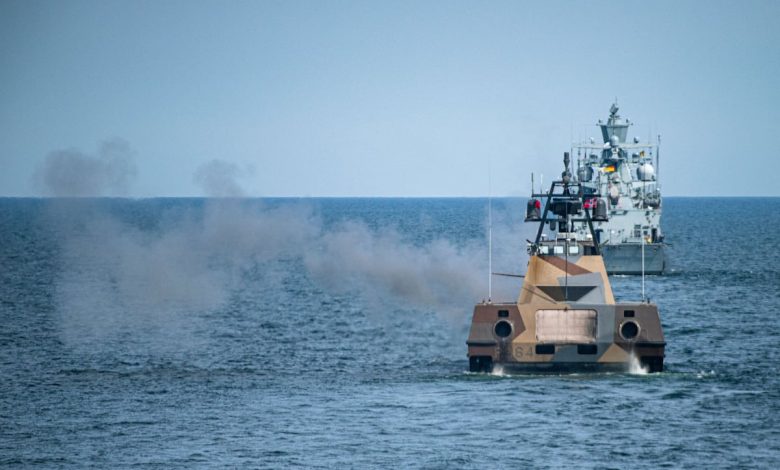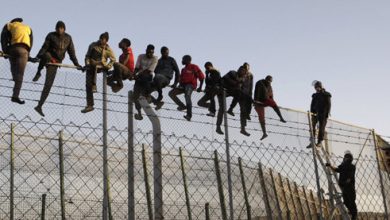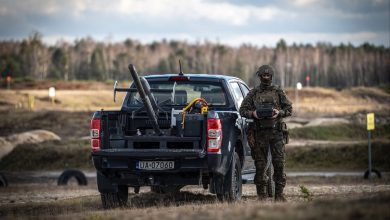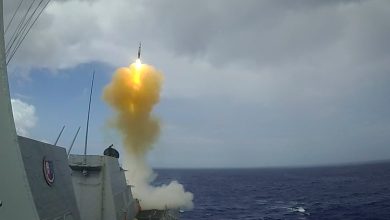Estonia-Russia ship standoff portends a harsher tone on the Baltic Sea

MILAN — Russia’s detention of a Greek-owned ship that departed from Estonia – days after Estonian forces tried to intercept a Russia-bound tanker – signals Moscow’s willingness to deploy military power more overtly to protect its shadow-fleet, a vital pillar of its war economy, experts say.
Russia temporarily stopped the oil tanker in its territorial waters on Sunday following the Estonian navy’s attempt last week to stop the unflagged and unresponsive Jaguar tanker in its exclusive economic zone.
The apparent retaliation was interpreted by analysts as a signal of Russia’s readiness to defend its clandestine maritime operations by force, if needed, to deter possible interference.
“Russia is more overt in using military force to protect its shadow fleet — using a jet in what appears to be a case of reckless and unsafe flying is a clear indication that it wants no interference with the ships that are increasingly instrumental to its war economy,” Sebastian Bruns, a senior researcher at the Kiel, Germany-based Institute for Security Policy at Kiel University (ISPK).
While it was the first time Russian officials held a ship in the region, experts say that the incident is part of a wider pattern of behavior toward the Baltic state.
“It doesn’t dramatically differ from the broader trends in Russian attitudes towards Estonia — it only reflects the multifaceted nature of Russian hybrid warfare combining military force, plausible deniability and information warfare,” Ivan Klyszcz, a research fellow at the Estonia-based International Centre for Defence and Security said.
The episode began on May 13, when the Jaguar transited through Estonian waters.
“The Navy started calling out to identify the status of the ship and verify its flag – the intention was to direct it to anchorage to check it and the insurance,” the chief of staff of the Estonian Defense Forces’ Headquarters ,Maj. Gen. Vahur Karus, said during a national news program, as quoted by Estonian broadcaster ERR.
The vessel, suspected to be part of Russia’s shadow fleet, had previously sailed under the Gabonese flag until this right was removed three days before it was sanctioned by the U.K.
“It was destined for the Russian Federation,” Maj. Gen. Karus said.
According to the Estonian minister of foreign affairs, Margus Tsahkna, the Estonian navy made an initial, unsuccessful attempt to stop the tanker.
After the vessel refused to follow orders to alter its course, rather than heading towards Russian waters escorted by Estonian ships, a Russian Sukhoi Su-35 jet approach, flying in Estonian airspace for less than a minute.
The Russian warplane was sent as a protective measure to prevent the Jaguar from being sized, Margarita Simonyan, head of the Russian state-owned outlet RT said on X.
Such hectic situations in the Baltic Sea have intensified in recent months, with NATO launching its Baltic Sentry patrol mission in January after a series of sabotage incidents.
Boarding and inspecting suspicious vessels has proven to be an increasingly complex endeavor, largely because of the different laws governing national versus international waters.
Bruns noted that the May 13 incident presents wider strategic implications, as Europeans look for ways to strike a balance between maritime regulations while carrying out national and allied defense.
“What do Western navies and coast guards do when in the future cargo ships of the shadow fleet will be ‘closely protected’ by Russian warships? These are tough questions to ask,” he said.
International law grants a country the right to board and inspect foreign vessels in their EZZ to verify compliance with its regulations.
“I would caution Estonia will be cautious with the kind of ‘escalation’ had they been more forceful – they too are walking a fine line,” Bruns said.
Russia released the Greek tanker Green Admire on May 20, which continued its voyage to Rotterdam, according to ERR.
Elisabeth Gosselin-Malo is a Europe correspondent for Defense News. She covers a wide range of topics related to military procurement and international security, and specializes in reporting on the aviation sector. She is based in Milan, Italy.







